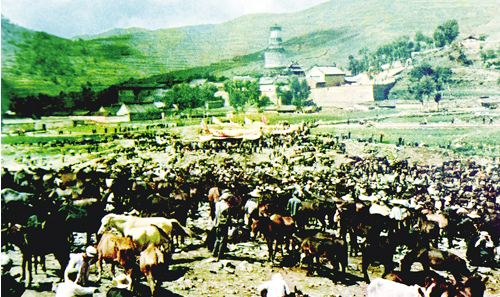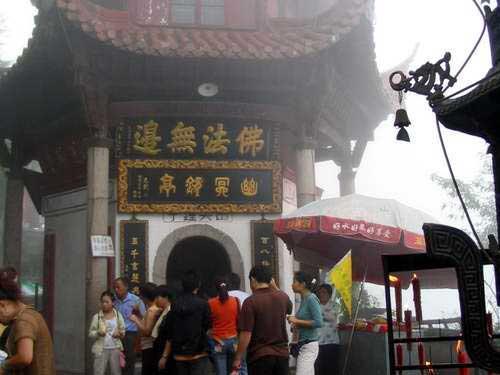Horse and livestock trade fair at Mount Wutai
(chinadaily.com.cn)
Every June, Mount Wutai is awash with activities usually associated with Buddhism pertaining to literature or the arts, as well as one that runs in sharp contrast with the tranquility and incense-infused atmosphere of the mountain: a horse and livestock trade fair.
 |
|
An old picture shows the massive horse and livestock staged at Mount Wutai. [Photo/sxwts.gov.cn] |
During the Qing Dynasty (AD 1644-1911), Emperor Qianlong (AD 1736-95) advocated Buddhism. He went to Wutai Mountain five times and gave orders to build temples and hold pujas in June every year.
Activities during the horse and livestock fair are dynamic, and monks from different regions crowd onto the mountain to perform rites or chant in Taihuai county, making Mount Wutai a vibrant place full of religious colors.
 |
|
Visitors tour the temple complexes on Mount Wutai during the horse and livestock fair, and appreciate local folk customs at the variety of activities taking place. [Photo/English.jschina.com.cn] |
In recent years, the horse and livestock fair has grown to a larger scale, the number of cows, donkeys, mules, and horses for trade has increased to over 10,000 every day during the event.
The splendor of the event has gained unprecedented prosperity year after year, greatly enriching Mount Wutai, one of the four most famed Buddhist mountains in China, with its flourishing bazar and diversified cultural traditions and relics.
